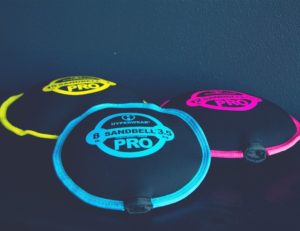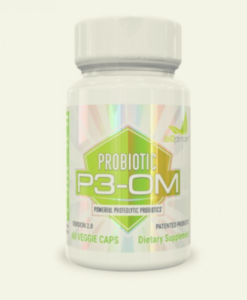As most doctors will agree, the digestive system is among the most sensitive parts of the human body. Unfortunately, a large number of people fail to understand the importance of practicing healthy feeding habits, especially when it comes to protecting the digestive system. For the longest time I was insensitive about the foods and drinks I consumed, believing that my digestive tract was strong enough to handle all the toxins I ingested.
However, sooner rather than later, the unhealthy feeding habits caught up with me as I started relaying some unusual symptoms such as constipation, bloating, chronic diarrhea, excessive fatigue and a failing immune system. Naturally, I was devastated and decided to seek the assistance of a healthcare practitioner. After several tests were conducted, I was diagnosed with leaky gut, a disease which I will be telling you more about.
Leaky gut, as we will discuss in the next section, is a complication that affects the digestive system. It is important to check on your diet to prevent leaky gut; however, if you suffer from the condition, you will need to be aware of the various foods to avoid with leaky gut. Worry not, though, as I will walk with you step by step as we look to know more about Leaky Gut, its symptoms and how it can be treated.

What is Leaky Gut Syndrome?
Leaky gut syndrome is a medical condition that affects the digestive system. As you are aware, the digestive system comprises of several organs that perform tasks such absorption, removal of waste and digestion. In addition to the primary roles, the digestive system also acts as a barrier between the bloodstream and the gut, consequently preventing harmful bacteria in the tract from reaching the blood vessels.
Due to the role of absorbing water and nutrients, both the small and large intestines have small gaps designed to allow them to function properly. The tight junctions ensure the intestines are permeable enough to absorb.
Therefore, when it comes to leaky gut syndrome, the intestinal gaps loosen, consequently allowing toxins, harmful undigested particles and bacteria to reach the bloodstream. This explains why Leaky gut is sometimes referred to as intestinal permeability.
Owing to the lack of enough medical evidence, leaky gut syndrome is not fully recognized by mainstream medical practitioners. However, alternative practitioners have been pushing for the recognition of the syndrome as a serious medical condition that can affect the immune system.
What Causes Leaky Gut Syndrome?
As it stands, Leaky gut syndrome`s exact cause remains a mystery. However, despite the reluctance of mainstream physicians to recognize leaky gut as a medical condition, intestinal permeability is a well-known condition known to occur alongside a host of chronic ailments such as diabetes and celiac disease.
When it comes to intestinal permeability, it is impossible to overlook the role of Zonulin. To put it in perspective, Zonulin is a highly important protein that helps regulate tight junctions. According to research findings, the higher the level of Zonulin, the higher the chances of increased permeability in the intestines. For people with celiac disease, gluten plays a massive role in enhancing the Zonulin levels.
Gut dysbiosis, a condition characterized by insufficient levels of healthy intestinal bacteria, is also among the causes of increased permeability in the intestines. Also, the long term reliance on anti-inflammatory drugs such as ibuprofen and aspirin have been proven to play a role in increasing intestinal permeability.
Also, stress is among the causes of leaky gut as it is known to lead to several gastrointestinal disorders. In addition to stress, deficiency in zinc and vitamins A and D levels can lead to intestinal permeability. As a result, one has to be keen on vitamin and mineral intake to ensure the intestinal linings are well protected.
How do you know if you have leaky gut? The signs and symptoms
As highlighted in the previous sections, Leaky gut usually occurs as a result of leakage of bacteria and other toxins from the gut to the bloodstreams. Below are some of the symptoms you need to be on the lookout for:
- Nutritional deficiencies
- Poor immunity
- Chronic diarrhea
- Bloating
- Joint pains
- Depression or increased anxiety
- Autoimmune infections such as celiac disease, lupus or rheumatoid arthritis
- Skin rashes and acne
- Excessive fatigue
The above symptoms are directly associated with leaky gut. Therefore, in case you exhibit such symptoms, it is advisable to seek professional medical assistance as opposed to self-medicating. Leaky gut leads to complications in the immune system once the bacteria leak into the blood vessels. As a result, it is not uncommon for affected people to develop immunity related complications such as rheumatoid arthritis, reduced immunity, diarrhea and even migraines.

How to Prevent Leaky Gut Syndrome
Since leaky gut isn’t officially recognized as a stand-alone medical condition, there is no recommended or preferred treatment. However, despite the lack of direct treatments, there is a host of things you can do to improve your overall digestive tract health. The best way to prevent leaky gut is by taking up a balanced diet to protect your gut linings and improve the digestion process.
Below are some of the ways you can prevent leaky gut syndrome:
Increase your fruit intake
To prevent leaky gut syndrome from occurring, you will need to boost your overall fruit intake. It is advisable to eat kiwis, pineapples, raspberries, grapes, bananas, blueberries, passion fruit, lemon and oranges. Fruits help improve your immunity and overall digestive health.
Consider Healthy Fats
Healthy fats are recommended for anyone looking to take up healthy living practices. Moreover, fats such as avocado and coconut oil do not stick on the surfaces of your digestive organs thus reducing the chances of increased permeability.
Fluids
Increasing your overall fluid intake will help to ensure your digestive system is well prepared for breaking down different foods. Consider increasing water, fresh juice, porridge and soup intake levels.
Vegetables
By observing a vegetable-based diet plan, you will be well placed to prevent leaky gut from occurring as your intestinal linings will be strengthened by nutrients found in vegetables such as cabbages, broccolis, arugula, kales, eggplants and carrots.
Healthy Living
It goes without saying that a healthy lifestyle promotes good health. Thus, for you to successfully prevent intestinal permeability from occurring, you must be willing to take up and maintain a healthy lifestyle.
Five Foods to Avoid With Leaky Gut
As we have already established, leaky gut is a condition that can be avoided by adapting positive dietary habits. However, as I learnt while receiving treatment for leaky gut, there are some foods that should be avoided by people battling with the condition. If not controlled, leaky gut can lead to severe symptoms and even more complicated conditions affecting the immune system among other major body parts.
Therefore, if you have leaky gut or exhibit some of the symptoms highlighted in the earlier sections, then you will need to avoid the following five foods.
Gluten
Gluten is widely considered as the leading cause of leaky gut, more so for people diagnosed with celiac disease. Gluten comprises of two main proteins gliadin and glutenin. Gliadin is considered as the negative protein in gluten as it leads to a host of medical complications for people who over consume foods containing gluten.
Gluten levels influence the production of zonulin. High levels of gluten in the body promote the excretion of zonulin which, when in high concentrations, can be harmful to the intestinal linings. Some of the foods containing gluten that you will need to avoid are such as breads, noodles, pastas, granola, cereals, pastries and malt beverages.
Gluten is pro-inflammatory meaning it is likely to cause gastrointestinal problems for people with complications in their digestive systems. Generally, if you suffer from leaky gut, it is advisable to avoid consuming wheat-based products as they can worsen the condition.
Sugar
My greatest challenge when looking to manage leaky gut was finding ways to cut down on sugar. If you are a sweet tooth like me, then you need to find ways to minimize your overall sugar intake immediately. Unhealthy bacteria found in the gut feed on glucose which further increases the chances of having leaky gut. High amounts of fructose are known to reduce the effectiveness of intestinal walls, especially when it comes to absorption.
Since sugar ranks high in the list of foods to avoid with leaky gut, it is crucial to reduce, or if possible, cease consuming all types of sugars including some of the healthy ones. Coconut sugar, despite being a healthy sugar, can also have a negative impact on your digestive system. Due to this, it is advisable to work with your personal doctor to determine sugars that you should completely avoid. Bad gut bacteria produce exotoxins which destroy your healthy cells consequently creating holes in your intestinal lining.
Dairy Products
Although not all dairy products can increase inflammation in your digestive system, it is important to consult with your physician before consuming dairy products when suffering from leaky gut. Of all the foods to avoid with leaky gut, dairy products are the most challenging due to the availability of several varieties. While fermented milk can help in repairing gut linings, it can also affect some patients negatively and further aggravate the condition.
However, if you suffer from leaky gut, you should avoid dairy products such as milk, cheese and ice cream. If you must consume yoghurt, then you should ensure it is probiotic. Your doctor should advice you on dairy products that you can consume based on your body`s ability to break down lactose found in milk and other dairy products.
Phytates and Lectins
Grains containing gluten are known to be rich in anti- nutrients such a phytate and lectin compounds. Lectins are found in a host of basic foods such as corn, beans and even vegetables such as potatoes, peppers, eggplant and tomatoes. As a result, you should avoid foodstuffs containing anti-nutrient compounds as they negatively affect the digestion process.
Lectins are harmful to the digestive system since they attach to intestinal linings, consequently disrupting the function of the tight intestinal junctions. Phytates, on the other hand, limit the ability of your intestines to absorb nutrients and important minerals. Therefore, as you look to change your diet, it is advisable to promote the healing of your body by refraining from consuming foods rich in phytates and lectins.
Processed Meat and Junk Food
Processed meat and junk food top the list when it comes to foods to avoid with leaky gut. As you might be aware, processed red meat does more harm than good to your body. Avoid meats such as cold cuts, hotdogs, bacon, sausages and deli meats as they can be hard to fully break down into absorbable nutrients.
Similarly, it goes without saying that anyone looking to prioritize healthy living should avoid junk food. Junk food rarely contains fiber thus making it hard to be absorbed in the intestinal lining. The excessive carbohydrates in junk food are usually broken down to sugar which, as mentioned earlier, promotes the development of harmful gut bacteria.
If you truly want to restore your gut health and overcome leaky gut, then you will need to alter your diet and completely avoid the above mentioned foods.

What to do if You Have Leaky Gut Syndrome
Although leaky gut can escalate to serious levels if not properly handled, observing the following tips will ensure you treat the condition, and regain your gut health.
Go for hypoallergenic proteins: Since leaky gut more often than not leads to sensitivity and food allergies, opting for hypoallergenic proteins such as rice, pea, chia and hemp can go a long way in reducing the symptoms, and helping your gut lining recover.
Bone broth is recommended: Luckily, bones are not included in the list of foods to avoid with leaky gut. Bone broth contains gelatin which, when consumed in the right amounts, can help restore your mucosal lining in the tract. On top of gut lining restoration, bone broth contains amino acids and glutamine which play a huge role in reducing intestinal permeability. If you are a vegetarian, then Galangal broth is recommended as an effective alternative to bone broth.
Increase consumption of fermented foods: Although dairy products are not advised when dealing with leaky gut, taking fermented milk or probiotic dairy products help in strengthening your gut lining. Consider including unpasteurized sauerkraut, lacto-fermented pickles and even kimchi as mainstays in your diet. Fermented foods fight pathogens while providing nutrients for healthy gut bacteria.
Increase your fluids: If you suffer from leaky gut, then you must be aware of the need for increased fluid uptake. Increased gut permeability means you will lose several nutrients and minerals due to faults in your digestive system. However, by increasing your uptake of fluids such as water, bone broth and fresh juice, you will be well positioned to improve your overall digestive health and recover from leaky gut.
Collaborate with your physician: Unfortunately, most of the leaky gut symptoms can easily be mistaken for other ‘lighter’ infections. As a result, it is critical to seek the assistance of your physician before, during and after treatment of intestinal permeability. By having a rich understanding of all the foods to avoid with leaky gut, you will be well positioned to control and treat the condition.
Summary
Despite not being officially recognized as a medical condition, health experts agree that leaky gut can be avoided and even treated by taking up positive dietary habits. As I learnt the hard way, irresponsible feeding habits can have adverse effects on your overall digestive health and lead to complications such as intestinal permeability among others.
Luckily, since leaky gut arises due to bad dietary practices, you can treat the condition by taking up positive feeding habits. For instance, you should lower your sugar and gluten intake to avoid the condition from creeping up and catching you by surprise. Regular fruit and fluid consumption also helps in preventing as well as managing the condition.
To treat leaky gut, it is crucial to monitor your diet and ensure that you avoid foods that may promote gastrointestinal inflammation. Consuming healthy oils and fermented foods will help protect healthy gut bacteria, and create an optimal environment for digestion and absorption of nutrients.



